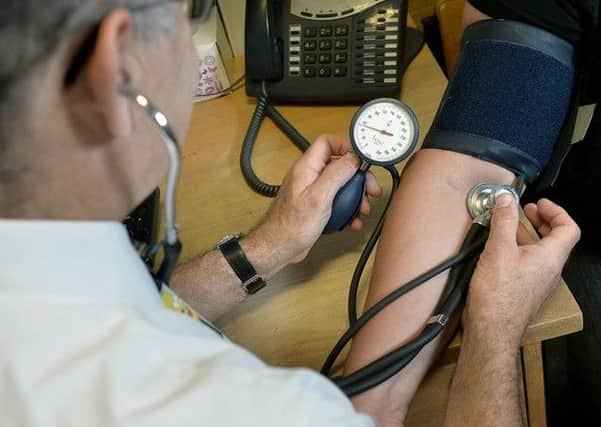‘Heart disease deaths are not increasing in Morecambe Bay’


It comes after a British Heart Foundation report revealed deaths from cardiovascular diseases in the UK among under-75s have risen for the first time in more than 40 years.
Public Health England data shows 363 people under the age of 75 in the NHS Morecambe Bay CCG area died from heart disease between 2015 and 2017, the latest period for which data is available.
Advertisement
Hide AdAdvertisement
Hide AdIt means a death rate of 37 in every 100,000 for the area, which is a 19% reduction on the death rate in 2011-13.
This is an improvement on the previous six-year period - when the mortality rate dropped by 15% - and bucks the national trend.
Likewise, 141 people died from stroke in 2015-17 - a death rate of 14 in 100,000.
This is an 11% drop from 2011-13, compared to -4% over the previous six years.
Advertisement
Hide AdAdvertisement
Hide AdThe BHF also says historic reductions in mortality rates have “slowed to a near standstill”.
It warns that millions of people are living with undiagnosed conditions including high blood pressure and diabetes that increase their risk of a fatal heart attack or stroke.
Dr Adrian Brodison, Consultant Cardiologist and Clinical Lead for Cardiology at University Hospitals of Morecambe Bay Trust (UHMBT) said: “According to these figures the death rate from heart disease is not increasing in this area, it is bucking the national trend.
“This is a very positive finding as is the death rates from stroke which often has common causes.
Advertisement
Hide AdAdvertisement
Hide Ad“The reason why these rates are falling is complex but is likely to relate to more comprehensive cardiology management and coverage.
“For the past four-five years we have provided a consultant cardiology lead inpatient service which sees all patients with a potential diagnosis of heart attack across two acute hospital sites 44 miles apart which means that they all now get the best possible opinion and management with comprehensive use of all the recognised risk reducing strategies, for example cardiac drugs, revascularisation, smoking cessation advice and cardiac rehabilitation.
“There have been increased efforts within Morecambe Bay CCG to identify and treat patients with high blood pressure, high cholesterol, diabetes and atrial fibrillation and we also have a local health improvement project looking at identifying hard to reach patients to do their health checks as well as increased awareness of treating blood pressure.
“A project being funded by the NHS Innovation Agency involves GPs being given a monitoring device to screen and identify more patients with heart rhythm disorders, which will enable them to make a diagnosis more quickly.
Advertisement
Hide AdAdvertisement
Hide Ad“Hopefully with all these projects being put in place we should see a continued decline in cardiac and stroke rates, not just deaths.”
Professor Jamie Waterall, from PHE, said stopping cardiovascular disease remained a major challenge that required a united effort across society.
He said: “Supporting people to become more active, eat well, cut back on alcohol and quit smoking will help reduce the number of heart attacks and strokes, most of which are preventable.
“We also need to get better at detecting those at risk earlier and getting them the right support.”
Advertisement
Hide AdAdvertisement
Hide AdHe added: “If you’re over 40, getting your free NHS health check will help detect early warning signs of heart attack and stroke as well as other serious conditions.”
The BHF report, which used separate data, showed that 42,384 people died from cardiovascular diseases in the UK before the age of 75 in 2017 – around 3% more than the 41,042 in 2014.
This comes after an almost uninterrupted fall in deaths since 1971.
It also shows how the pace of reducing deaths has slowed, dropping just 9% in 2012-17 compared to 25% over the previous five-year period.
Advertisement
Hide AdAdvertisement
Hide AdSimon Gillespie, chief executive of the BHF, said the UK had made “phenomenal progress” in reducing deaths from a heart attack or stroke.
He added: “But we’re seeing more people die each year from heart and circulatory diseases in the UK before they reach their 75th, or even 65th, birthday. We are deeply concerned by this reversal.
“Heart and circulatory diseases remain a leading cause of death in the UK, with millions at risk because of conditions like high blood pressure and diabetes.
“We need to work in partnership with governments, the NHS and medical research community to increase research investment and accelerate innovative approaches to diagnose and support the millions of people at risk of a heart attack or stroke.”